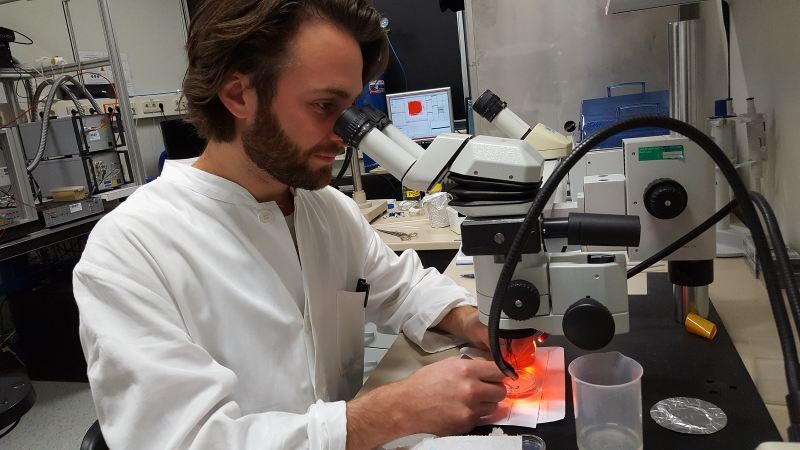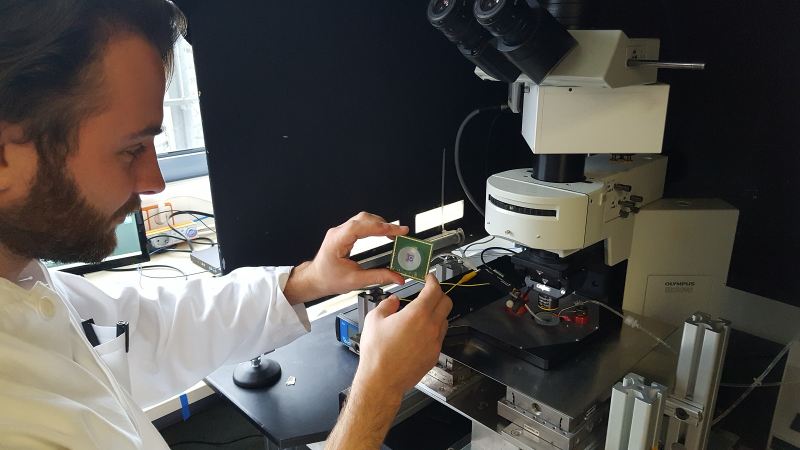


Florian Jetter, PhD Student
Hometown: Reutlingen, Germany
Affiliation: Natural and Medical Sciences Institute at the University of Tübingen (NMI)
What are you working on?
My research aims for a better understanding of the response of nerve cells to electrical stimulation. For this, I use a new kind of so-called Microelectrode Array (MEA) which allows recording of the activity of more than one hundred neurons at the same time. The same MEA also allows the simultaneous application of arbitrary electrical stimuli. This enables me to analyze the response of neurons to different electrical stimuli.
Why is it interesting?
Neuroprosthetic implants usually work in an environment with a high density and functional diversity of neurons such as in the retina or in the brain. However, in most cases the treatment of neurological conditions aims at activation or inhibition of only a specific functional class of neurons. Unspecific stimulation of neurons is therefore a huge issue with current neuroprosthetic implants and might cause side effects such as blurred vision for retinal implants or unwanted mood changes for deep brain stimulation. With my PhD project I hope to find stimulation patterns which allow a targeted stimulation of cell-classes.
What do you like most about being a scientist?
It is the constant exchange, the learning and improvement. Medical implants are quite an interdisciplinary field of science. You have to understand the hardware you are using, know about the physical, chemical and biological interactions, do the data analysis and you also need to be aware of the medical relevance of your research. Therefore you have to acquire a basic knowledge in other relevant disciplines beside your own scientific background and you need to keep close contact to scientists from other fields. This makes working in this field fascinating and challenging at the same time.
Your favourite thing outside of science?
It's hard to name just a single thing, but for me its the combination of sports, friends and family thats the perfect balance to scientific work.


